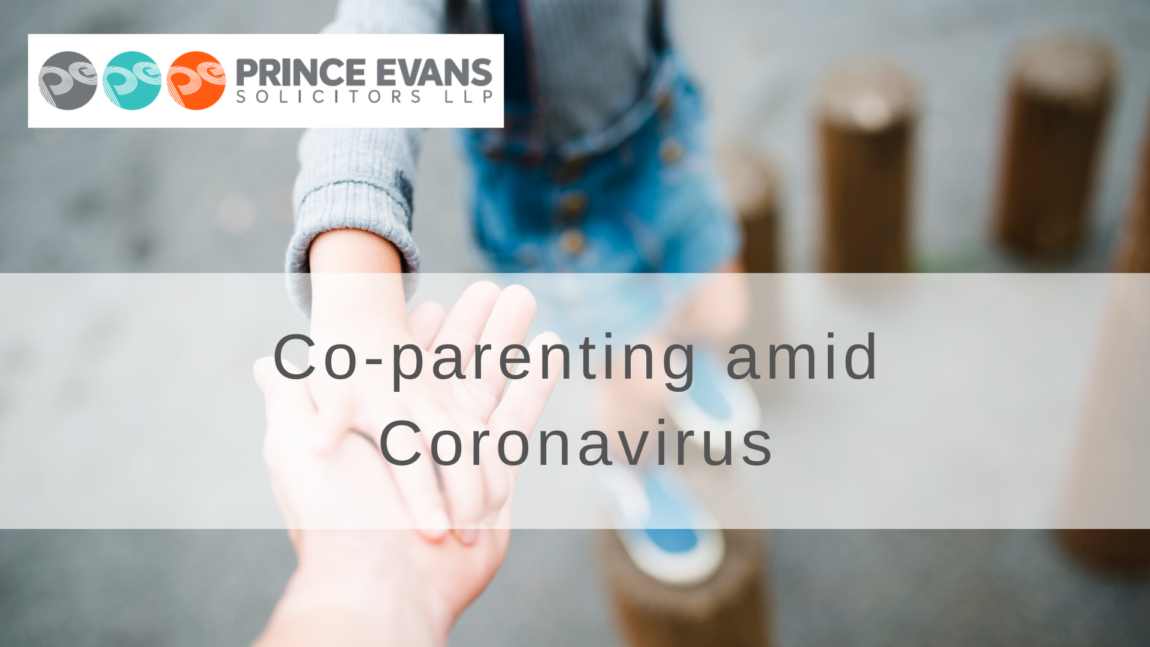
Co-parenting amid Coronavirus
With schools now closed, social distancing strongly encouraged and potential self-isolation, trying to co-parent during these extraordinary times can be a very stressful and anxious time for parents and their children.
We have had several enquiries on what to do with child arrangements during this difficult period. How do you successfully co-parent during the crisis when you are being asked to stay at home? How do you ensure you are sticking to child arrangement Orders when you consider that you are risking your child’s and other people’s safety by abiding to the Court Order? At a time when children need calm and stability more than ever, how do you strike the right balance?
As of 24 March 2020, Michael Gove, on behalf of the government, confirmed that separated children travelling between parents’ homes is considered essential travel during lockdown. The guidance as it stands is: ‘Where parents do not live in the same household, children under 18 can be moved between their parents’ homes.’
Further guidance from Sir Andrew Macfarlane on 24 March 2020, President of the Family Division and Head of Family Justice, further clarified that while children could be moved between parents’ homes, it did not mean all children must keep travelling for contact visits. If one parent is worried that moving their child is against public health advice then they “may exercise their parental responsibility and vary the arrangement to one that they consider to be safe”, even if the other parent does not agree.
Whilst it is important to be compliant with Court Orders as much as possible, the Courts would not expect you to put your child or others in harm’s way. Should the parent acting unilaterally be questioned in the Family Court, the Court will look at whether the parent acted reasonably in those circumstances along with any other specific evidence relating to the family.
If the conclusion is that the child cannot physically see one parent, then the Family Court would expect parents to facilitate contact by video chat or phone. This is the time to get creative. Try to encourage closeness as much as possible with the parent who is unable to see the child through shared games, books, Facetime or Skype. Some parents will have to work extra hours, some may be working from home, be out of work or on reduced hours. Plans will inevitably have to change and alternative arrangements made. If parents can agree together that the terms of the Court Order should be temporality varied, then any agreement should be recorded in a note, email or even text message.
Be transparent and provide honest information to your co-parent about any suspected or confirmed exposure to the virus to prevent exposure to the child. Certainly inform the other parent if the child is exhibiting any possible symptoms of the virus.
The key message from the Family Court is that the spirit of the Court Order should nevertheless be delivered whilst ensuring safe alternative arrangements are made for the child. It is important for every child to know and remember that both parents did everything they could to explain what was happening and to keep their child safe.
What if you can no longer pay child maintenance? Many employees have been placed on furlough leave, made redundant as well as a significant number of self-employed people facing huge drops to their earnings.
It is essential to be understanding given the pandemic will pose economic hardship for many parents. The paying parent should try to provide something even if it cannot be the usual full amount. The parent receiving payments should try to be accommodating under these difficult but hopefully temporary times. This period can be used as an opportunity for parents to come together and think about what is best for their child regarding spending. If your child maintenance is calculated through the Child Maintenance Service (CMS) and the income of the paying parent has changed, it is important to contact CMS to speak to an advisor as well as informing the receiving parent. The calculation can then be adjusted accordingly once the change of income is reported to CMS.
If you have any queries regarding any matters arising from this article, please contact a member of the Family and Divorce team on 020 8280 2711 who would be pleased to speak with you.
Written by Hazel Kent, Solicitor.

